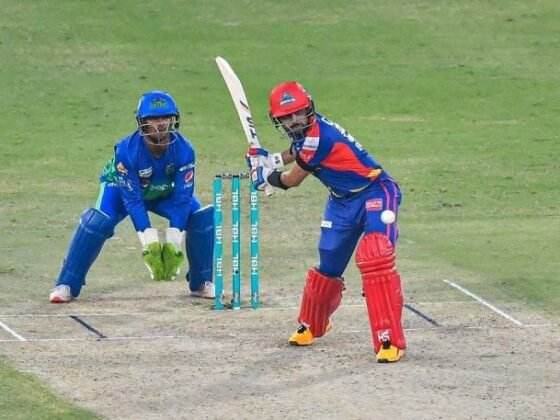LONDON: A Pakistani environmentalist and Oxford College lecturer Dr. Abrar Chaudhury acquired the ‘Greatest Doctoral Dissertation Award 2017’ by the Organisation and Pure Surroundings Division (ONE) on the Academy of Administration in Atlanta.
Abrar acquired the award for his pioneering work in managing local weather change in growing international locations together with Pakistan.
The award recognises relevance, scholarly contribution, theoretical and methodological rigor, in addition to sensible implications in choosing the right dissertation.recognises relevance, scholarly contribution, theoretical and methodological rigor, in addition to sensible implications in choosing the right dissertation.
Abrar’s doctoral analysis investigated the challenges of adapting to the hostile impacts of local weather change in agriculture in growing international locations, together with Pakistan.
Agriculture occupies roughly 40 to 50 % of the earth’s land floor and is the one largest supply of revenue and jobs for poor rural households within the growing world.
In Pakistan it’s the second largest financial sector, contributing roughly 20-25computer to the nationwide Gross Home Product (GDP) and absorbing roughly 42computer of the labour pressure. International warming reduces crop yields, threatening world meals safety and push thousands and thousands into poverty.labour pressure. International warming reduces crop yields, threatening world meals safety and push thousands and thousands into poverty.
Chatting with Zari Information, Abrar elaborated: “My work requires crossing disciplinary boundaries from pure science (understanding local weather change), social science (how persons are impacted and the way they react) to administration science (how responses are deliberate and organised). The analysis is near my coronary heart and touches on the larger actuality of how we are able to stay in and adapt to an unpredictable and altering world with an ever-increasing inhabitants”
The PHD has already been translated into a number of high-level journal publications, working papers and blogs.
The award committee praised his analysis noting: “It was extraordinarily impressed with the novelty of the dissertation, the setting and detailed knowledge and analyses, in addition to the vital sensible implications of the work.”
Abrar stated: “I’m delighted to obtain this award as a Pakistani and the popularity of my work in growing pragmatic options for tackling the depraved problem of local weather change in useful resource constraint international locations. I stay up for persevering with researching this vital work in my house nation of Pakistan, constructing on my sturdy affiliation with Oxford College.”
Abrar has an attention-grabbing and various profession. He grew up and studied in Lahore, educated as a chartered accountant. He went on to steer one of many oldest Pakistani accountancy corporations, arrange by his grandfather who was the primary member of the Institute of Chartered Accountants of Pakistan.
Abrar’s ardour for the surroundings drove him to get a doctorate in Environmental Change and Administration, an MBA, and an MSc in Environmental Administration from the College of Oxford.
He informed Zari Information his inspiration for finding out local weather change got here from the 2010 floods in Pakistan.
“Pakistan skilled its worst ever pure catastrophe in 2010. One-fifth of the nation was underneath flood-waters, displacing thousands and thousands of individuals and inflicting harm at scale of billions of US . Regardless of guarantees for higher prevention and coping measures by the federal government, civil society, and the worldwide group, there was little proof of actions to create capability for native populations to take care of environmental shocks and adapt to longer-term environmental change.”
“As an accountant I understood numbers however not the science behind local weather change and excessive occasions. I wished to study what causes local weather change and why our response was so lackluster, regardless of Pakistan constantly ranked as probably the most climate-vulnerable locations on the planet.”
“I took a leap of religion, stepped out of my comfy skilled life, enrolled myself in Oxford. I’ve by no means appeared again”
He added: “The Pakistani floods have been an eye-opener to the dimensions and complexity of the local weather change problem in Pakistan and growing international locations normally, and the substantial hole within the means for efficient responses.”
“My analysis confirmed that efficient responses requires mixed and sustained efforts of many disparate actors, from governments providing sturdy coverage frameworks, consultants creating evidence-based data on native threats to treasury and growth companions providing complementary property and assets. The post-flooding evaluation in Pakistan highlighted that recognising the problem and setting coverage just isn’t sufficient. If efforts are fragmented and uncoordinated, responses are unlikely to be efficient, resulting in recurring disasters.”
Abrar divides his time between Pakistan and Oxford, specializing in figuring out sensible and implementable options for local weather change in Pakistan.










